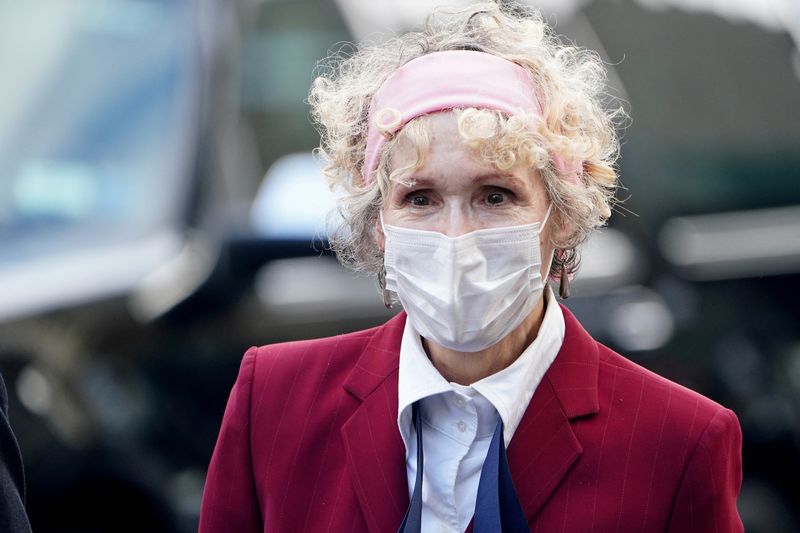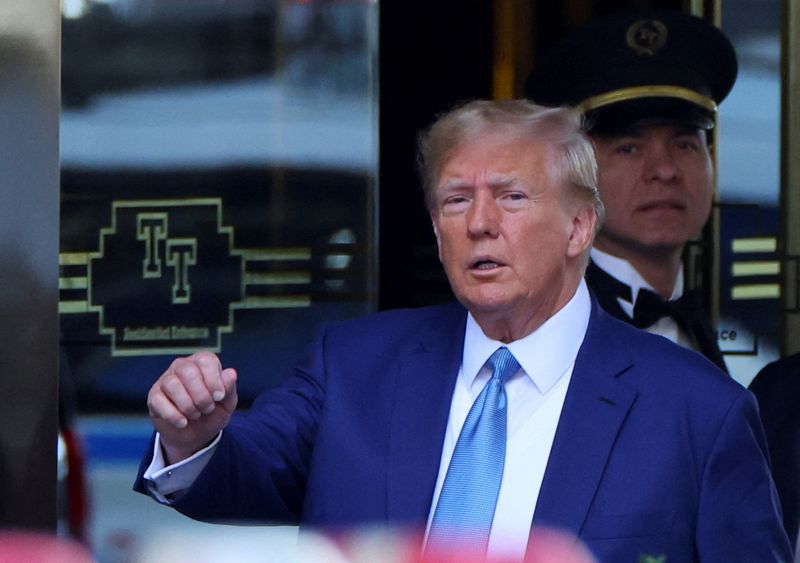By Jonathan Stempel
NEW YORK (Reuters) - Donald Trump will not learn the identities of jurors expected to decide at an upcoming civil trial whether the former president defamed the writer E. Jean Carroll, who also claims Trump raped her.
U.S. District Judge Lewis Kaplan in Manhattan on Friday rejected Trump's renewed effort to require that prospective jurors provide their names, employment and 38 other pieces of information on written questionnaires.
Kaplan said the law was "abundantly clear" it was his choice whether to use questionnaires, and nothing has changed his decision to seat an anonymous jury at the April 25 trial, reflecting the threat of juror harassment.
Lawyers for Trump did not immediately respond to requests for comment.
Trump had argued that his recent criminal indictment filed by Manhattan District Attorney Alvin Bragg had brought on a "deluge of prejudicial media coverage" that would make it tough to find an impartial jury in Carroll's civil case.
His lawyers said the coverage dwarfed the media attention given to Hollywood producer Harvey Weinstein, biotech executive Elizabeth Holmes and Jeffrey Epstein associate Ghislaine Maxwell just before their recent high-profile criminal trials began.
While jurors would hear much about Trump even in "normal" circumstances, "the risk of prejudice is even more elevated" because of Bragg's case, Trump's lawyers said.
Trump is leading the Republican field for the 2024 presidential election.
Carroll, a former Elle magazine advice columnist, has said Trump forced himself upon her in a Bergdorf Goodman department store dressing room in Manhattan in late 1995 or early 1996.
The trial concerns whether Trump defamed her in October 2022 by saying the rape claim was a "hoax" and "lie" and that she was not his "type."
Carroll also wants Trump found liable for rape under a New York law giving adults a one-year window to sue their alleged abusers even if statutes of limitations have expired.

She is separately suing Trump for defamation over his June 2019 denial that the dressing room encounter happened.
The case is Carroll v Trump, U.S. District Court, Southern District of New York, No. 22-10016.
